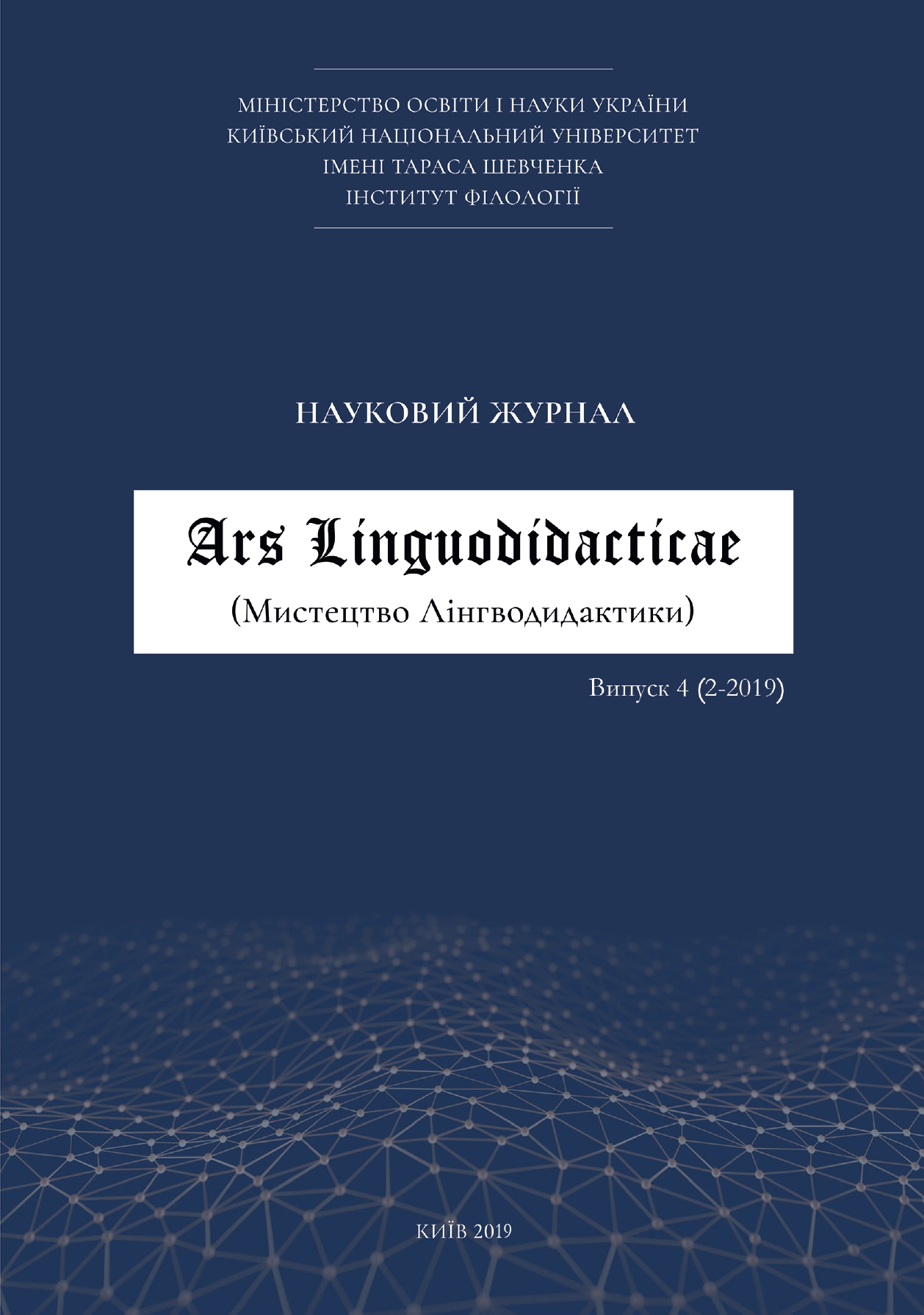STUDENT-CENTERED CLASROOM ASSESSMENT: PERCEPTION AND NEW METHODS
DOI:
https://doi.org/10.17721/2663-0303.2019.4.01Abstract
One of the important roles and responsibilities of teachers is to conduct assessment to assess students’ progress. The implementation of alternative assessment methods can be frustrating and rather difficult for teachers. This paper discusses teacher and student perceptions on using alternative assessment. It focuses on how young learners of English perceived three different alternative assessments: peer-assessment, conferencing and the use of students’ drawings as assessment materials. The data sources comprised classroom observations, interviews with teachers and written comments from students. Analysis of the data provided insights on how teachers choose assessment techniques in A1 and A2 level classes. Teachers’ perceptions on the specific assessment methods are discussed. The written comments from students identified how students perceived the combination of the assessment methods employed by teachers and which assessment method they favored. The results show that teachers and students have positive perceptions on alternative assessment. Students’ needs and age are important factors for selecting assessment methods and individual needs must be taken into consideration when choosing alternative assessment methods. This paper highlights the importance of alternative assessment in A1 and A2 level classes since it can improve instruction. Results on the drawings used in the study as assessment materials indicate that students value personalized assessment. Alternative assessment can be a vital component in educators’ efforts to improve education.
Key words: alternative assessment, teacher literacy, students’ perceptions, teachers’ perceptions, formative assessment, conferencing, drawings.
Downloads
Published
How to Cite
Issue
Section
License
Copyright (c) 2019 Іріні-Реніка Папакамену

This work is licensed under a Creative Commons Attribution-ShareAlike 4.0 International License.
This work is licensed under a Creative Commons Attribution-NonCommercial 4.0 International License.
Copyright policy according to the terms of the license: Creative Commons "Attribution-NonCommercial" 4.0 International (CC BY-NC 4.0).
Authors who publish their articles in "Ars Linguodidacticae" (Open Access Journal) retain the following rights:
- The authors retain the copyright of their article and grant the Ars Linguodidacticae journal the right to first publish the manuscript of their article under the Creative Commons (CC BY-NC 4.0) Attribution License, which allows others to freely distribute the published work with mandatory reference to the author of the original work and first original publication in the Ars Linguodidacticae journal. An indication of the retention of the copyright of the work is provided on the title page of the article.
- The authors reserve the right to enter into separate contracts for the non-exclusive distribution of their article as published in Ars Linguodidacticae (e.g., placing the article in electronic libraries, archives and catalogs or publishing it as part of institute collections and monographs), provided that a full reference to the first original publication in Ars Linguodidacticae is given.
- The policy of the "Ars Linguodidacticae" journal allows and encourages authors to post a manuscript both before and during editorial processing, as this promotes productive scientific discussion and has a positive effect on the speed and dynamics of citing the article.
The editorial board reserves publishing rights to:
- the collated original articles and to the entire issue of the journal.
- the design of the journal and original illustrative and supplementary materials.
- the reprint reprints of the Journal in printed and electronic form.
The copyright policy is carried out according to the terms of the license: Creative Commons "Attribution-NonCommercial" 4.0 International (CC BY-NC 4.0).
For more information, please read the full text of the CC BY-NC 4.0 Public License.
Creative Commons Attribution-NonCommercial 4.0 International License.


